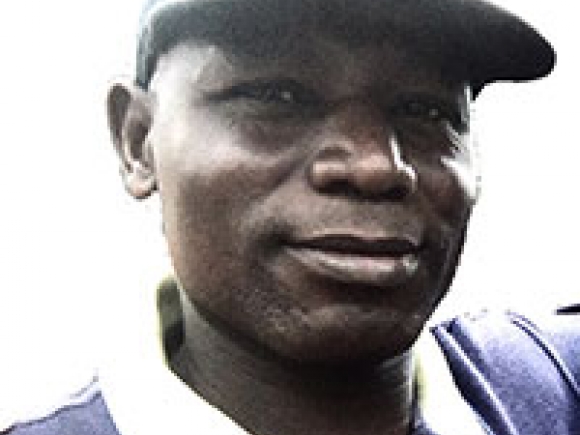
In August last year, Burkinabe newspaper L’Ouragan reported allegations of corruption and abuse of power at the office of a local prosecutor. The reports alleged that a high-profile case concerning counterfeiting had been shelved following the prosecutor’s intervention and that he had also intervened in a case relating to the illegal trade in second-hand cars.
A criminal complaint was filed against the paper’s editor, Lohé Issa Konaté, who was sentenced to 12 months imprisonment and ordered to pay damages totalling US$12,000. The paper was ordered to be closed for six months. The court’s decision was upheld on appeal.
Following his conviction, Konaté engaged MLDI to petition the African court on human and Peoples’ Rights, a new human rights court that can pronounce binding judgments and which only a minority of African States have enabled its citizens direct access to. In its petition to the court, MLDI asks it to rule that Konaté’s imprisonment violates his rights but also argues that disputes concerning reputation should not be settled through the criminal law. It argues that this is an outdated procedure and not in keeping with modern notions of democracy – particularly if journalists are threatened with prison as a result.
MLDI urged the court to rule that Konaté should be released pending its determination of the case.
Criminal defamation laws are commonly used across Africa against journalists, and the Konaté case coincides with a campaign by the African Commission’s special rapporteur on freedom of expression to have them abolished.
MLDI’s senior legal counsel, Nani Jansen, who represents Konaté in the proceedings alongside human rights lawyer John Jones QC, commented that “no journalist should serve a prison sentence in a case like this. No matter how serious the matter, defamation can be settled through the civil law. Imprisonment for libel violates the right to freedom of expression, and we hope to get a swift ruling from the Court freeing Konaté.”
Recent News
Landmark Ruling: Kenya’s High Court Declares Colonial-era Subversion Laws Unconstitutional
Media Defence welcomes the verdict of the High Court in Nakuru, striking down sections of the Kenyan Penal Code which criminalise subversion, citing them as relics of colonial oppression that curtail freedom of expression. Justice Samwel Mohochi, delivering the judgment, asserted that these provisions were overly broad and vague, stifling dissent rather than serving any […]
UN Rapporteurs Call for Protection of Brazilian Journalist Schirlei Alves
UN Rapporteurs Call for Protection of Brazilian Journalist Schirlei Alves Amid Defamation Charges Stemming from Rape Trial Coverage A letter dispatched by UN rapporteurs to the Brazilian Government calls for protective measures for women journalists covering cases of sexual crimes. The letter also denounces the conviction of Brazilian investigative journalist and women’s rights defender, Schirlei […]
Convite à apresentação de candidaturas: Cirurgia de litígio em português na África Subsariana
Cirurgia de litígio em português na África Subsariana Aplique aqui 23 a 25 de julho de 2024 em Nairobi, Quénia Prazo: 3 de maio A Media Defence está a convidar advogados sediados na África Subsariana que falem português a candidatarem-se a participar numa próxima cirurgia de litígio sobre o direito à liberdade de expressão e […]



